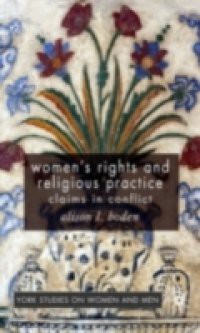Religious freedom is widely agreed to be a basic human right. So are women's rights , among others, to life, to freedom from torture or captivity, and to bodily integrity. Occasionally such rights claims come into conflict, with valid arguments made on each side for the importance of safeguarding religious integrity and for the dignity of women. Alison Boden analyzes the ways in which gender and religion so complicate the use of human rights rhetoric that it can become ineffective in resolving the standoff. Women's Rights and Religious Practice traces the impediments to a legal resolution and, comparing Islam, Hinduism, and Christianity, examines the variety and complexity of theological positions on women and equality. With a perspective that respects both women's rights and religious practices, the book analyzes arguments for accommodating ethical differences, for family privacy and religious authority, and for the wishes of the women involved. It concludes that, in many instances of such conflict, a resolution is to be found in changes to familial religious ideology rather than to rights legislation and enforcement.

